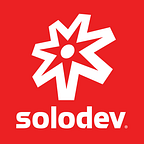How to Add Social Share to your Company’s Google Search Results
The ultimate goal of Google is to provide the best online experience to its users. While some question how to get first page ranking on organic keywords, others are taking advantage of Google’s Knowledge graph.
What is the Knowledge Graph?
The Knowledge Graph is a knowledge base integrated with Google’s search engine. It provides a graphical presentation of information related to a user’s search queries. When Google recognizes a query related to an entity in its knowledge base a panel to the right appears in the search results. Here you’ll find information about the subject, including images, facts, and related searches. For example, if you search for amazon, you’ll get this result.
By looking at this Knowledge Graph it seems that amazon has everything in order, right? Not quite, since the Knowledge Graph takes up as much real estate as the search results itself, you want to fully optimize this graph. Let’s do another search, Michael’s for example:
Notice that the social profiles show up for this search result. How do you ensure Google’s knowledge base includes your profiles? With schema, structured markup of course. Google allows you to specify these types of social profiles:
- G+
- Youtube
- MySpace
Adding Structured Markup to Your Site
In order for Google to recognize structured data as social profiles you must use the schema vocabulary in JSON-LD markup format. You must also ensure that you fulfil these requirements:
- Make sure this markup is on your official website
- Pages with these markups aren’t blocked by Googlebot by robots.txt
- Include a person or organization record in your markup with:
- “url” is the url of your official website
- “sameAs” is the urls of your official sodial profile pages
Here is a basic JSON-LD template:
<script type="application/ld+json">
{ "@context" : "http://schema.org",
"@type" : "Organization",
"name" : "Your Organization Name",
"url" : "http://www.your-site.com",
"sameAs" : [ "http://www.facebook.com/your-profile",
"http://www.twitter.com/yourProfile",
"http://plus.google.com/your_profile"]
}
</script>You can add this script block on the head or body of the page. To test and verify that your markup is correct, use Google’s Corporate Contacts Markup Tester tool. If the tool reports “no structured data present,” then go back and check your markup for syntax errors. A correct markup should look like this:
The next time Google crawls the web and indexes your page, your profiles from your markup will show in the results. You can also ask Google to crawl the page by following these instructions. Google says that it may take up to a week for your social profiles to appear, I’ve heard others say that it took them up to 30 days. Either way Google says that if you have waited a week and your social does not appear on your knowledge graph you can report the missing events using the small “feedback” link under the Knowledge Graph. Click “wrong?” on your company’s name and explain the issue using social profiles in the description of your problem. Once you submit that feedback you should receive an email from Google as to whether or not your addition has been approved.
Remember, Google’s mission is to provide the best online experience to users, optimizing your Knowledge Graph will help in that cause. Above all, make sure you are paying attention as to how visitors are interacting with your site and create a great experience for them. If you need help optimizing your website, give us a shout.
Originally posted on the Solodev Web Design Blog
Brought to you by the Solodev Team. Solodev is a cloud-based web content management system that empowers users with the freedom to bring amazing web designs to life.
